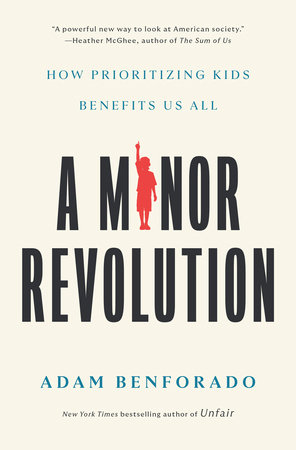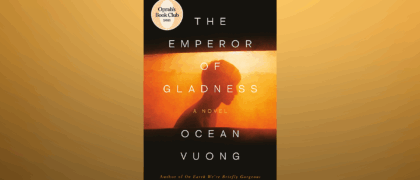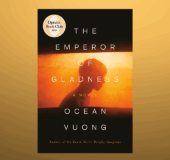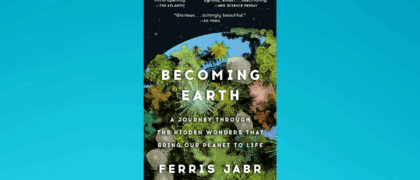Contributed by Adam Benforado, author of A Minor Revolution: How Prioritizing Kids Benefits Us All. Drawing on the latest research on the value of early intervention, investment, and empowerment, A Minor Revolution makes the urgent case for putting children first—in our budgets and policies, in how we develop products and enact laws, and in our families and communities.
Do you remember a moment from your childhood when your rights were disrespected?
I ask my students this question each year and I always marvel at how fresh the memories seem, how the injustices have not faded with time: the spanking father, the judge who never asked what the kids thought about joint custody, the gym teacher who laughed off the brutal bullying, the priest brought to the house to set straight the wayward son.
It’s true for me, as well: even the smallest slights of my youth linger, seeking to be accounted for, desiring a reckoning.
Last term, I recalled an exchange I had the summer before my senior year of high school. I’d been selected for the Virginia Governor’s School, a month-long residential enrichment program, in Richmond. Away from my home and parents, on a college campus, with teachers who didn’t really seem like teachers—who shared ideas without pop quizzes—it was one of the first times I truly felt like an adult. And then, in an instant, I was put back in my place.
We had ample free time in the evenings, and so I’d formed a band—Beans & Franks. It was the final party, on the last night, and we were set to play a few covers and an original that I’d written over the previous weeks.
Right before we were to go on stage, the head of the school pulled me aside. He wanted me to recite the lyrics of the songs we were going to perform. I was shocked. I was 17 years old—and everyone at the camp was a junior or senior. Even if the words were offensive—which they weren’t—every student in the audience had heard plenty of offensive songs. What could he possibly be worried about?
As I finished running through the words, he shook his head. No. We couldn’t perform the song I’d written. The offending lyric? “Smooth like a rubber, bounce it back to your mother.”
Was it a sexual reference? I suppose, technically, yes. But it weighed less than nothing—it was a stupid, meaningless rhyme. My bandmates thought I was joking when I explained that I’d been told we couldn’t play the song. When he realized I was serious, Tom, the other guitarist said, “Fuck him. Let’s play it.”
But the truth is that I was, as a teen, someone who respected adults and rules, even those I disagreed with. And, in retrospect, I think that’s what made the administrator’s actions seem so wrong. I was someone who could be trusted to be mature—I did all of my assignments over the month not because I was being graded, but because I found it interesting; I didn’t sneak away to do drugs; I didn’t smuggle my girlfriend into my room. Most everyone at the school was like that: these were the smart, diligent kids who got doting letters of recommendation from their teachers to be able to attend. And, yet, the head of school looked at us and saw people who couldn’t handle a single instance of vague sexual innuendo sung over a shoddy PA system.
I thought then and I know now that we mistreat our young people. We silence them when they deserve a voice. We protect them from the most benign elements—country mud, swear words, library books—while exposing them to harms that will exact a lifelong toll—pollution, guns, poverty. We deny them any political power, while failing to act on the things that matter most to them: racism, inequality, and climate change.
I wrote my new book, A Minor Revolution: How Prioritizing Kids Benefits Us All, to draw attention to our failures—from the most minor censorship, like this, to the weightiest of deprivations and abuses. I tell the stories of children thrown into orphanages at age three, left homeless at six, and given life-sentences at 16. I chronicle the toll of parental incarceration and heavy metals on infants and student debt and geographic immobility on those at the cusp of adulthood. And I provide the evidence from psychology, neuroscience, sociology, economics, and other fields to show the value of reorganizing our families, schools, businesses, and government to put children first. As I argue, prioritizing kids is not simply a moral duty; it is also the path to bettering all of our lives because childhood is the window of opportunity for addressing nearly every major social problem we face, from crime to poor health to underemployment.
Whether we make progress will be determined by our courage to listen to young people and respond to their plight. It is time to come together as a community to discuss children’s rights. Should a 15-year-old be allowed to vote for president? Should she serve on a jury? How “good” is good enough for a public elementary school in America? How much childcare leave is enough? Should we forgive the worst mistakes a child makes? How much should parents monitor their kids as they venture out into the world? How much should we care about other people’s children?
The answers matter for all of us. Let’s start the conversation together.
Click here to access an Instructor’s Guide for the book, including a sample syllabus






